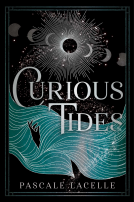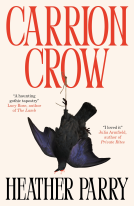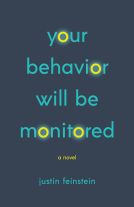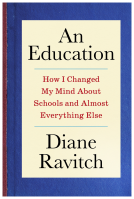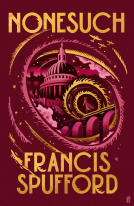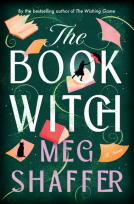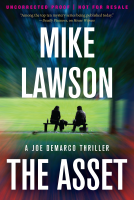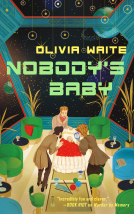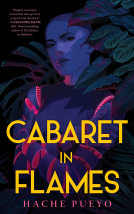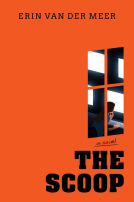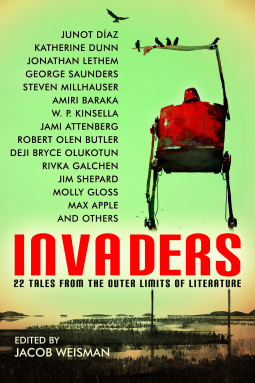
Invaders
22 Tales from the Outer Limits of Literature
by Junot Diaz, Katharine Dunn, George Saunders, Rivka Galchen, W. P. Kinsella, Jim Shepard, Steven Millhauser, Jami Attenberg, Deji Bryce Olukotun, Molly Gloss, Max Apple, Amiri Baraka, Jonathan Lethem, and others
This title was previously available on NetGalley and is now archived.
Send NetGalley books directly to your Kindle or Kindle app
1
To read on a Kindle or Kindle app, please add kindle@netgalley.com as an approved email address to receive files in your Amazon account. Click here for step-by-step instructions.
2
Also find your Kindle email address within your Amazon account, and enter it here.
Pub Date Jul 12 2016 | Archive Date Aug 10 2016
Description
No one is safe when literary authors—including multiple Pulitzer Prize and MacArthur Fellowship recipients—invade the future. Corporations control the world (albeit from unassuming offices), nanotechnology returns unasked-for memories, the undead are almost mundane, and aliens infiltrate the big leagues.
Like time-traveling mad scientists, the Invaders have concocted outrageous creations. They have seized upon tales of technology gone wrong and pushed pulp fiction to finally grow up (mostly).
Wildly speculative, innovative, and unexpected, these twenty-two tales leave no doubt that the future belongs to all kinds of writers—no matter where their books happen to be shelved.
For further information, please contact our publicist, James DeMaiolo: jim@tachyonpublications.com.
A Note From the Publisher
Advance Praise
A Kirkus Science Fiction and Fantasy Book You'll Want to Read in July
A 2016 Publishers Weekly Best Summer Read
A Foreword 4 Great Indie Sci-Fi Titles for Summer 2016
[STAR] “In this
very fine reprint anthology, Weisman has brought together 22 SF stories by
authors who, although not generally associated with the genre, are clearly
fellow travelers (not the ominous invaders suggested by the title). Among the
major names are Pulitzer Prize–winner Junot Díaz, George Sanders, Katherine
Dunn, Jonathan Lethem, Amiri Baraka, W.P. Kinsella, Steven Millhauser, Robert
Olen Butler, and Molly Gloss. Among the best of the consistently strong stories
are Díaz’s “Monstro,” the horrifying tale of a disease outbreak in Haiti;
Gloss’s near-perfect first-contact story, “Lambing Season”; Kinsella’s totally
bizarre “Reports Concerning the Death of the Seattle Albatross Are Somewhat
Exaggerated”; Ben Loory’s fable-like “The Squid Who Fell in Love with the Sun”;
and Saunders’s “Escape from Spiderhead,” a deeply sexy tale of wild
experimental science. In general, the stories tend toward satire and emphasize
fine writing more than hitting genre beats—technology is usually a means to an
end rather than the center of the story—but most of them could easily have
found homes in SF magazines. This volume is a treasure trove of stories that
draw equally from SF and literary fiction, and they are superlative in either
context.”
—Publishers Weekly
“Further proof, if any more were necessary, that the line
between genre and literary fiction is simply speculative.”
—Library Journal
“Invaders lives
up to its tagline – ’22 tales from the outer limits of literature’. In here,
some of the best writers have freestyled on a blank page, without care for
rules or patterns. And in so doing, they’ve produced stories that push the
envelope not only of sci-fi, but of literature as a whole.”
—Bookmunch
"This is tight writing and perfectly formed . . . It is evident the
authors are playing with the genre, and revelling in it.”
—Strange Alliances
“This new anthology from Jacob Weisman collects an
intriguing set of short stories from authors not typically associated with
science fiction.”
—The Verge
“Invaders is
a playful and imaginative exploration of what it means to write in the field of
science fiction”
—AV Club
“Well, damn. From the first page to the last, Invaders surprised and intoxicated
me, offering one stirring, visionary, warm-hearted, funny, probing story after
another. Reading them in quick succession made me feel as if the world was
flickering before my eyes, ricocheting from one possible reality to another,
beneath a dozen different suns. It would be hard to devise a better survey of
those contemporary short fiction writers, both celebrated and undersung, who
have worked to smuggle the methods of science fiction into the mainstream.”
—Kevin Brockmeier, bestselling author of The Brief History of the Dead
“For almost forty years I've believed and practiced and
preached that there's no necessary distance between ‘high literature’ and
‘science fiction.’ Invaders is
convincing proof. Funny, absurd, frightening, streetwise, probing,
heartbreaking—the fiction collected here touches all registers."
—Carter Scholz, Hugo and Nebula Award-winning author of Radiance and The Amount to Carry
“[O]ne of the best SFF collections I’ve read in years. It’s
a smorgasbord of visionary and thought-provoking stories…”
—Battered, Tattered,
Yellowed, & Creased
“Consistently excellent”
—Foreword Reviews
“This collection really explores the outer limits of
literature as it claims. I recommend it to you.”
—Magic Realism
“A superb batch of stories by literary authors who have
invaded science fiction — and left distinct footprints behind.”
—Black Gate
“The stories are smart and balanced, with a dark side but
highly readable.”
—Lit Reactor
Marketing Plan
-Interviews and features targeting print and media outlets to include NPR, the Los Angeles Times,Interzone, the AV Club, io9, and the Wall Street Journal
-Promotion in trade and commercial outlets
-Promotion on author and editor social media
(@tachyonpubs, tachyonpub.tumblr.com, facebook.com/tachyon-publications)
Available Editions
| EDITION | Paperback |
| ISBN | 9781616962104 |
| PRICE | $16.95 (USD) |
Average rating from 37 members
Featured Reviews
 Educator 144982
Educator 144982
Great anthology that one hopes will prove once and for all that the divide between literary fiction and science fiction can be bridged by a remarkably diverse and talented group of writers.
 Ellen A, Educator
Ellen A, Educator
A collection of sci fi stories from a variety of writers, most of whom not known for their work in this genre, Invaders: 22 Tales from The Outer Limits of Literature is a delight. Some of my favorite writers are represented: Jonathan Lethem (the name of whose story I unfortunately can't write here) is as hilarious and evocative as always and George Saunders contribution was heartbreaking in an over-the-top kind of way. Jami Attenberg (who wrote The Middlesteins, a book I loved) has a touching entry of a time when cars belong only to the government for war purposes and teenagers have to find new places to make out. Stephen Millhauser has a fascinating story of a 19th century artist whose paintings prefigure movies-figures move not only within the canvas but out into the world as well.
There are too many terrific stories to name them all But I strongly recommend this volume to fans of these writers, fans of science fiction, and fans of good literature. The stories are wonderfully satisfying; Although they take place in unreal or highly distorted worlds, they contain the truths that good literature always provides.
Thank you NetGalley and Tachyon Publications for this excellent collection.
 Titivillus B, Educator
Titivillus B, Educator
Already a fan of Saunders and Diaz, this collection allowed me access to writers that I hadn't previously encountered. Thus was a delightful read; these stories are witty, ironic and absurd while touching on profound truths about the human condition. The science fiction genre is here a highly effective device to present satirical insights and observations that challenge and provoke thought as well as laughter. Thanks to the marvellous curation of Jacob Weismann for a fantastic anthology.
 Joseph K, Reviewer
Joseph K, Reviewer
Science fiction and fantasy have long been considered the ghetto of literature - if they were considered literature at all. SF&F have long been shut out of major non-genre awards, and indeed have not often been considered for such awards. Literary writers and magazines have long looked down their noses at genre fiction. That attitude slowly appears to be changing. To be sure, the attitude is still prevalent, but the dividing line between genre and literature is showing some cracks. Authors like Michael Chabon and Doris Lessing have long professed their love for the genre, while writers such as Samuel R. Delany, Ursula K. LeGuin, and Harlan Ellison are considered to be among America's finest writers, not just America's finest science fiction writers.
It's also very clear that genre stories have taken over entertainment. In addition, we really do live in a science fictional world, a fact that no one denies. So it comes as no surprise that there are many literary writers that dabble in genre, either jumping in with both feet or use science fictional tropes in their stories without making it the centerpiece of the tale. Jacob Weisman of Tachyon Publications has gathered twenty two stories by writers who are not known to work in the genre in this anthology. And while it's not a book a fan of core science fiction is likely to casually pick up and read, it contains some highly entertaining and definitely well written genre tales that science fiction fans looking to broaden their reading experience are well advised to pick up.
I will admit to have heard of only four of the authors in this book, those being Jonathan Lethem, W.P. Kinsella, George Saunders and Junot Diaz. Kinsella is known for baseball stories, and here he combines science fiction and baseball in a first contact story called "Reports Concerning the Death of the Seattle Albatross are Somewhat Exaggerated", about a baseball mascot who is an alien. Junot Diaz gives us the frightening "Monstro", set in a world that is falling apart at the seams. The story tells of two friends and a mysterious, glamorous woman who all together are trying to figure out what is going on with the weird virus/disease that has broken out. Lethem's "Five Fucks" is a tale which involves many familiar science fiction tropes which makes us think a little bit about one night stands and evolution. Saunders give us "Escape from Spiderhead", a story of scientific advancement in the area of pharmaceuticals and the moral dilemma that can arise from those advancements. It's quite a frightening tale, but I suppose that with the advancements in genetics and medicine it may not be all that far-fetched.
While those are good stories, they aren't my favorites in the book. Steven Millhauser's "A Precursor to the Cinema" is a tale of an otherwise unexceptional artist who for a short period of his career has exhibits of his work that are indeed exceptional and particulary haunting. "Portal", by J. Robert Lennon, shows us a family who has bought a house and property that has a portal at the back of the property that can transport people to other places. The problem is the affect this transportation has on the people who use the portal. Brian Evenson's "Fugue State" is a very scary tale of a man who apparently has a malady that is not only contagious but looks like it could bring about the end of mankind (taken to its logical conclusion). "Lambing Season" by Molly Gloss is another first contact story which takes place in a remote location and relates the story of a human woman who meets an alien and the respect they have for each other. "Help Me Find My Spaceman Lover" by Robert Olen Butler is a story straight out of the National Enquirer, about a women in a small country town in Alabama who meets an alien and falls in love with it.
Other terrific stories include Deji Bryce Olukotun's "We are the Olfanauts", which gives us the tale of advancements in internet technologies. In this case, as you can probably tell by the title, the story deals with aromas that can be transmitted over the internet, and the consequences for the people that work in the field involved with that technology. "Topics in Advanced Rocketry", by Chris Tarry, takes place in a future when space travel is made available to the common family and the effect it has on the first family it is made available to. Max Apple's "The Yogurt of Vasirin Kefirovsky" shows us a scientist who is obsessed with the idea that the biblical manna was a form of yogurt. "The Inner City", by Karen Heuler, is a story straight out of The Twilight Zone, about a woman who is out of a job and looking for work, and who finds a lead for a job on a very strange street in a very strange part of town.
There are no bad stories in the book, and while I haven't summarized all of them, the stories by Eric Puchner, Ben Loory, Julia Elliot, Rivka Galchen, Jami Attenberg, Amiri Baraka, Kelly Luce and Katherine Dunn are just as engaging as the others I've mentioned above. This collection is, in my opinion, well worth picking up and shows that you don't need to be a genre writer to write good genre fiction. If only the rest of the literary world would understand that "good genre fiction" is not any oxymoronic term and recognize there is some really good stuff to be discovered in genre literature.
 Reviewer 224449
Reviewer 224449
This is a collection of science fiction stories written by authors that traditionally write literary fiction. I have to say - what an awesome collection. In a collection, there are usually a few stories that are just sort of 'clunkers,' but I really enjoyed all of the stories in this one. My favorites were the stories by Deji Bryce Olukotun, Jami Attenberg, George Saunders, and Junot Diaz. Highly recommended.
 Bill C, Reviewer
Bill C, Reviewer
4.5 Bill Invaders: 22 Tales from the Outer Limits of Literature Hats off to the editor for an unusually high percentage of truly excellent stories Invaders: 22 Tales from the Outer Limits of Literature ed. by Jacob Wesiman
As with most collections, whether they be of stories, poems, or essays, I found Invaders: 22 Tales from the Outer Limits of Literature, edited by Jacob Wesiman, to be a mixed bag overall, with some weak stories, some solidly good ones, some very good ones, and several absolutely great ones, more in fact than I typically find in an anthology, making this an easy collection to recommend.
The authors collected here are non-genre writers known mostly for “literary fiction,” such as George Saunders, Max Apple, Molly Gloss, Jim Shepard, Katherine Dunn, and Junot Diaz. In his introduction, Wesiman says the idea for this anthology came out of the responses he saw to an earlier one (from 2009) entitled the Secret History of Science Fiction, which was “intended to be a serious investigation of the intersection between literary writers who occasionally dabbled in science fiction and science fiction writers who occasionally dabbled in something resembling literary fiction.” The reactions, he states, were mostly positive, save for some that were angry and defensive, accusing the editors (James Patrick Kelly and John Kessel) of telling science fiction writers how they “should write.” The most prevalent critical response, though, he says, was that the genre authors’ stories were superior to their non-genre counterparts, who were, “somehow off the mark or ignorantly reinventing old tropes.”
For Invaders, Wesiman explains that “What I set out to discover in Invaders was the answer to a simple question, posed indirectly by the critics of the Secret History of Science Fiction: If non-genre writers are indeed writing something different from the rest of the science fiction field, what are they actually writing. His answer, perhaps unsurprisingly, turns out to be, “Mostly it depends on the writer.”
I won’t go through every story, just the few I especially liked, and then a quick mention of the good ones.
“Beautiful Monsters” by Erich Puchner: set in a world without adults (the why and wherefore of this is gradually revealed), this is a sharply written, near-perfect story that is both beautifully moving and icily horrifying. My vote for the best in the collection, though really it’s a fine distinction among the top five or so.
“A Pre-Cursor of the Cinema” by Steven Millhauser: a richly detailed and inventive fake biography/history of the Harlan Crane, an artist who supposedly invented animated paint and found his own way to the beauty and spectacle of moving pictures. The level of detail is brilliant both in its creation of imagined paintings and in the way it brings wholly to life a wholly imaginary person.
“Escape from Spiderhead” by George Saunders. Really, the author’s name is all one need know here. But if you don’t know Saunders, this is an excellent introduction to his bitingly witty satire of modern society and culture. Start here and then move quickly on to his own short story collections. He’s a master of warped humor that also makes you think.
“Limbs” by Julia Elliot: set in an assisted care center with the sci-fi trappings of new bionic technology (the titular “limbs”, actually an acronym) that allows for greater freedom of independent movement as well as a potential lessening of dementia onset. This is a lovely, sometimes funny, sometimes achingly moving, story that goes in unexpected directions.
“Lambing Season” by Molly Gloss. A first contact story that reads more like Annie Proulx, Gloss uses the sci-fi trope more as a vehicle for voice and character exploration. Tender, quiet, sparse as its setting, a fantastic story.
These five alone are well worth the price of admission to the collection. Others that were very good but didn’t quite rise to the level of great were: “Fugue State” by Brian Evenson, “Amorometer” by Kelly Luce, and “Monstros” by Junot Diaz. The rest of the stories run the gamut from “meh” to “good but flawed in some way.” Even the majority of these (though admittedly not all) however were still what I’d call well crafted with strong characterization and rich language, and many sprang from a highly imaginative concept even if that premise wasn’t fully exploited. So for instance Jonathan Lethem’s “Five Fucks” had its share of issues, but I absolutely loved the presentation of one of the three main characters.
Circling back to Wesiman’s original question that he posed in his introduction: “If non-genre writers are indeed writing something different from the rest of the science fiction field, what are they actually writing?” based solely on this collection, I might respond differently than with his own answer that it “depends on the writer.” He’s right in the “what” nature of the question—we get hard sci-fi and soft sci-fi here (though mostly the latter for sure), horror and humor, satire and magical realism. But it’s more the “how” that stands out in this collection, with these authors presenting a stretching of language, a vividness of detail, a sharpness of characterization, a depth of humanity that one does find in genre writers, but less consistently. But of course, it is an anthology, meaning we’re getting a cherry-picked view of what non-genre authors can do working within the genre. I dare say I could pluck out a number of top-notch genre authors and come up with an equally impressive consistency of excellence. But really, I don’t much care about making distinction between genre and non-genre. So I’ll just leave you with what’s important here. Invaders has 22 stories. A quarter of them are out and out great. Another quarter or so are very good. And most of the rest are solid, enjoyable pieces told in skillful prose. Which makes Invaders one of the better anthologies I’ve read lately.
Readers who liked this book also liked:
Justin Feinstein
General Fiction (Adult), Humor & Satire, Sci Fi & Fantasy
